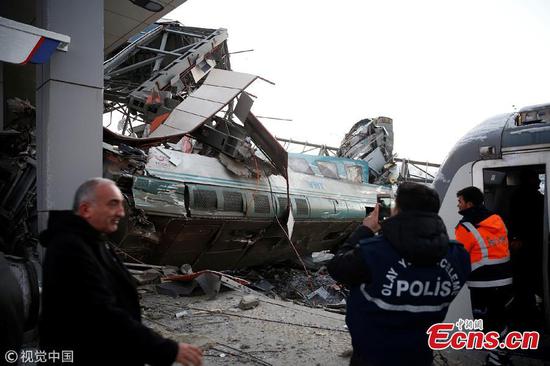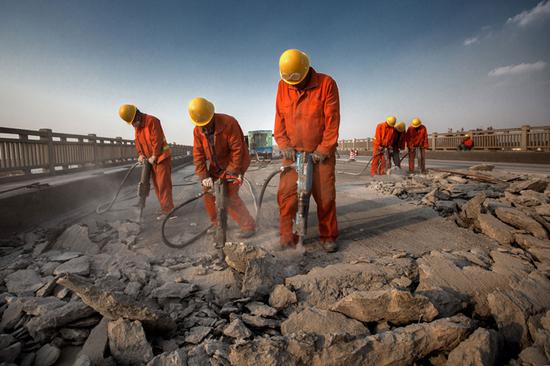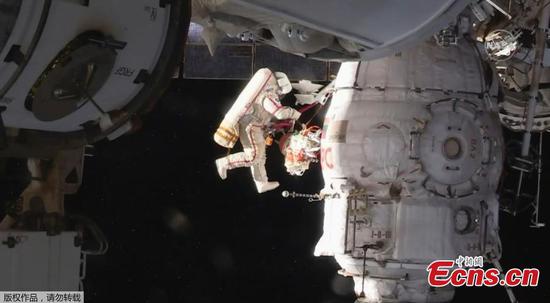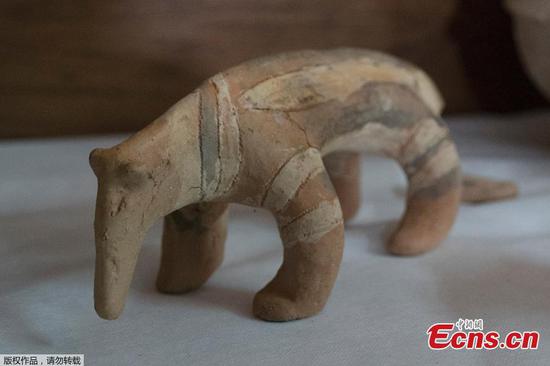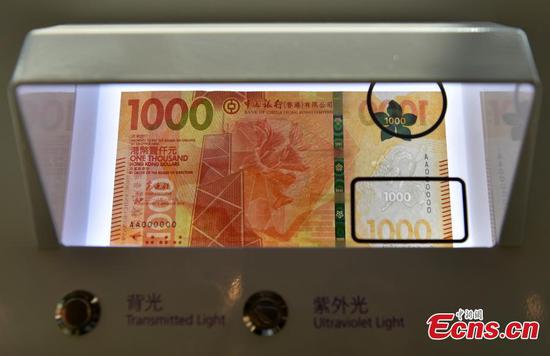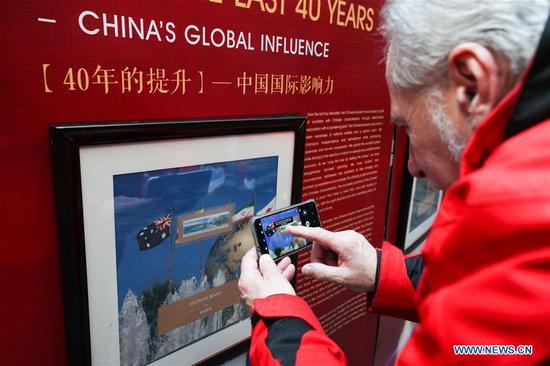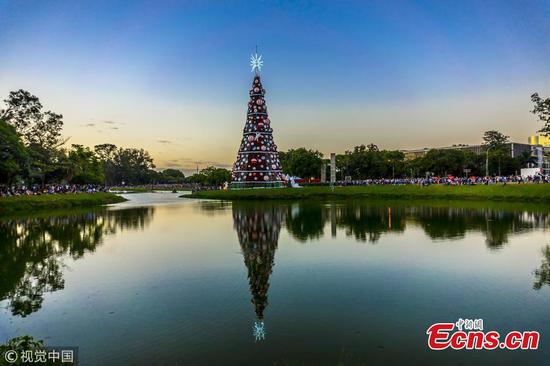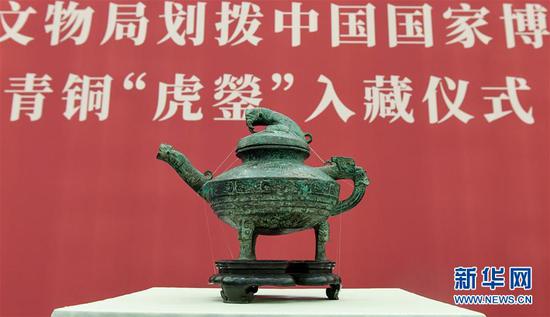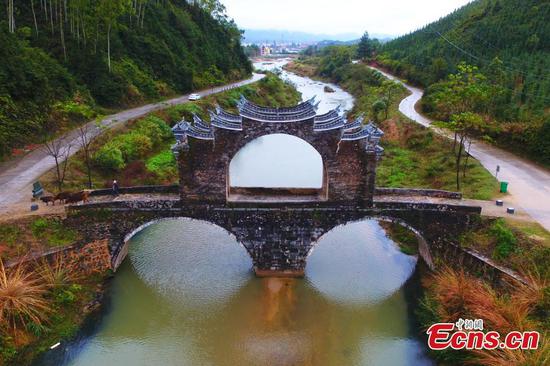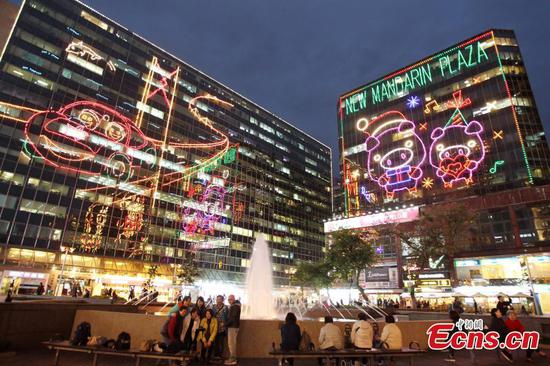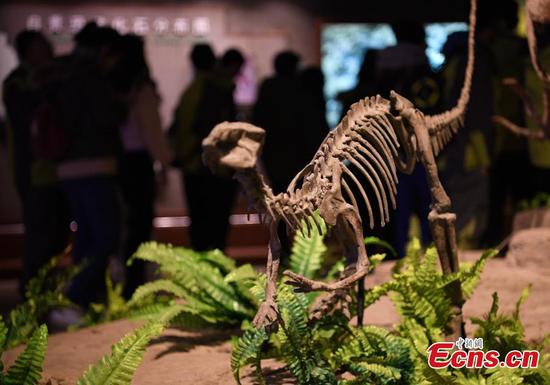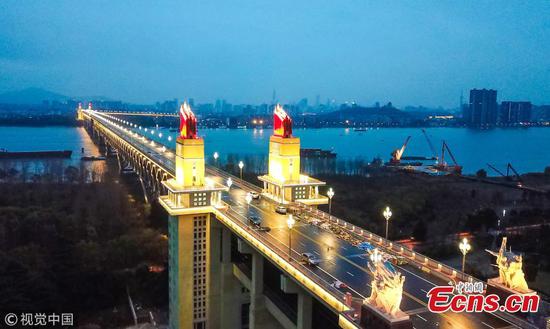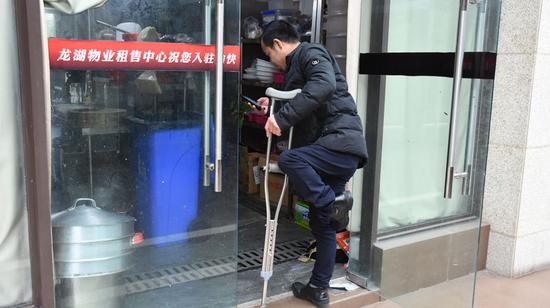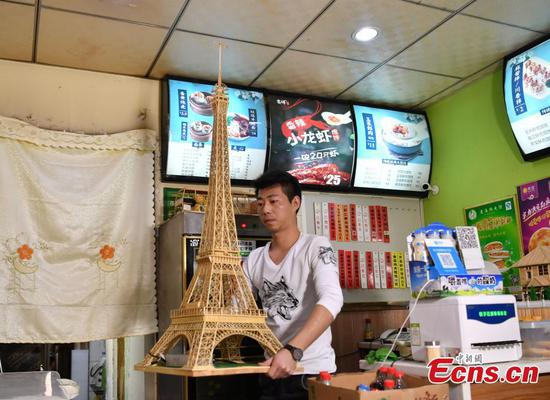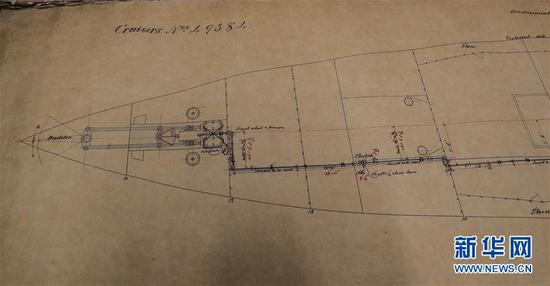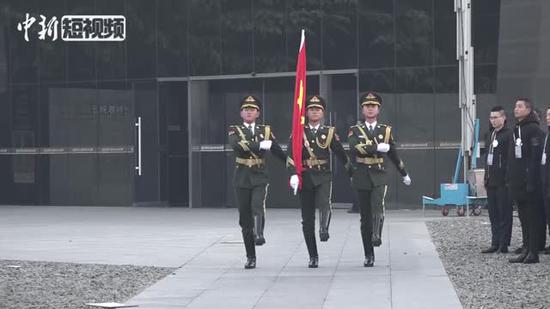Alibaba is now involved in dozens of pilot projects across China, with its open AI platform Tianqing for the ET City Brain system officially launched in September.
Set up by its cloud computing subsidiary, the Brain looks to make the city "think" through AI and cloud computing technologies, and help optimize public services in real time.
"There is abundant data in our cities, but the important data is not fully analyzed and used, and it is just idling there," said Hua Xiansheng, head of the AI center at Alibaba Cloud, and vice-president of Alibaba Group.
One place the Brain has been deployed is Hangzhou, capital of Zhejiang province. Once notorious for its traffic jams and urban congestion, the Brain has been helping traffic to flow more efficiently.
Since introducing the technology, Hangzhou's traffic congestion has fallen from the fifth-worst in China in 2016, all the way to 57th place this year, according to online mapping firm Gaode Map. Average rush hour speeds have also increased, from 20.7 kilometers per hour in 2012, to 24.15 kilometers per hour presently.
Thanks to smart city solutions, Suzhou in Jiangsu province can predict its traffic flow within the next hour to an accuracy of more than 94 percent.
"Currently, our experiments are mostly for government use, but we truly expect our open AI platform to enter more areas and help citizens live, work and entertain better," said Hua.
Research firm McKinsey Global Institute agrees. In its recent report Smart cities: Digital solutions for a more livable future, they find that cities can use smart technologies to improve some key quality-of-life indicators by 10 to 30 percent - numbers that translate into lives saved, fewer crime incidents, shorter commutes, a reduced health burden, and carbon emissions averted.
"A smart city not only requires innovative technologies like AI, big data, cloud computing and the internet of things, but also needs global standards to guide and assess the building of smart cities. The ultimate goal is not to build a completely intelligent city but to create a comfortable, healthy, safe and happy living and working environment for the urban population through the adoption of advanced technologies," added Franco.









